The Real Cost of Billing Decisions in Healthcare

If your clinic is losing time and money trying to keep billing in check, you’re not alone. Many providers feel caught between two hard choices: hiring and managing an in-house billing team or outsourcing to an external RCM partner.
This post breaks down what each option really means for your practice’s bottom line, efficiency, and peace of mind. Whether you’re a small private clinic or a multi-specialty group, you’ll see what works best and how to make the switch without disrupting cash flow.
What We’ll Cover
- Understanding the difference between in-house and outsourced billing
- Cost and performance comparisons
- When outsourcing makes the most sense
- Common mistakes practices make when switching
- FAQs from real clinicians
In-House vs Outsourced: The Quick Answer
If your team struggles with denied claims, delayed collections, or burnout from administrative work, outsourcing is usually the smarter move. But if you already have a skilled billing staff and consistent claim volume, keeping it in-house might still make sense.
Here’s a snapshot comparison:
| Factor | In-House Billing | Outsourced Billing |
| Control | Full control over staff and process | Managed by external experts |
| Cost | Higher fixed expenses (salary, software, training) | Variable cost per claim or revenue percentage |
| Scalability | Limited by staff capacity | Easily scalable as your practice grows |
| Speed & Accuracy | Depends on staff experience | AI-assisted accuracy and faster turnaround |
| Compliance Risk | Must be maintained manually | Lower because the vendor ensures ongoing updates |
In short, outsourcing gives you time back, while in-house billing gives you direct oversight. The right choice depends on what your practice values most: autonomy or operational efficiency.
Understanding the True Cost Behind Each Option
The reality about in-house billing is that costs go far beyond payroll. You’re also paying for:
- Software subscriptions and renewals
- Staff training and certification
- Office space and HR administration
- Downtime from turnover and re-hiring
Outsourcing, on the other hand, converts fixed costs into variable ones. You pay based on collections or claims volume and often recover more due to improved accuracy and follow-up.
For example, a small Texas family clinic processing 2,000 claims per month switched from in-house billing to MedVoice’s AI-powered RCM services and saw a 40% faster A/R turnaround within 60 days.

When you factor in the value of time, cash flow stability, and compliance assurance, outsourcing frequently delivers a stronger return than trying to build everything in-house.
When In-House Billing Still Works

Keeping billing internal can still be effective if your practice:
- Manages a lower claim volume (under 1,000 claims monthly)
- Employs experienced billers familiar with your specialty
- Maintains strong denial management processes
- Has minimal staff turnover and consistent workflows
If your denial rate sits below 5% and your A/R days are under 30, you’re doing well. But as soon as volume spikes or staff leave, efficiency can quickly drop. That’s when outsourcing becomes a safety net.
Why More Practices Are Moving Toward Outsourced RCM
Healthcare revenue management has evolved. Automation, AI, and analytics now make it possible to process claims faster and more accurately than ever before. Outsourced RCM partners bring advanced tools that most clinics can’t easily maintain on their own.
Key advantages of outsourcing:
- AI-Powered Accuracy: Near-perfect coding precision reduces denials before submission.
- Faster Turnaround: Claim tracking and auto follow-up speed up reimbursements.
- Compliance Confidence: Continuous updates to meet HIPAA and payer regulations.
- Focus on Care: Providers can redirect time from admin work to patient care.

Learn more about how RCM services improve cash flow and streamline operations for healthcare practices.
At MedVoice, these aren’t promises. They’re standard outcomes. With 20+ years of healthcare RCM expertise, we help practices recover lost revenue while maintaining transparency and control.
Avoiding Common Pitfalls During Transition

Switching from in-house to outsourced billing can feel daunting, but it doesn’t have to be. Most transition issues stem from poor planning. Here’s how to do it right:
- Audit Before You Switch
Review denial patterns, claim aging, and underpayments. Identify exactly where you’re losing revenue. - Plan a Gradual Handoff
Overlap billing processes for one cycle before fully transitioning to prevent cash flow gaps. - Vet Your Partner
Choose a vendor with proven results, HIPAA compliance, and experience in your specialty. - Test EHR Integration
A seamless data exchange prevents delays and ensures full visibility.
The best vendors will handle onboarding and training while keeping your systems connected.
You can also explore how streamlining medical billing enhances accuracy and reduces administrative bottlenecks.
Building Trust Through Proven Expertise
At MedVoice, we’ve spent over two decades helping healthcare providers, hospitals, and legal partners simplify revenue management. Our process combines certified billers, medical coders, and AI-powered technology, all under strict HIPAA compliance.
We’ve helped clinics increase revenue by up to 30% within three months, not by adding staff but by optimizing how claims are managed, tracked, and followed up.
You can see similar results in our revenue cycle management case study.
That’s the power of experience paired with smart technology.

Ready to Simplify Your Revenue Cycle?
If you’re spending more time fixing billing problems than caring for patients, it’s time to re-evaluate.
Ready to take the next step?
Explore MedVoice RCM Solutions or Schedule a Consultation.
You’ll see exactly where revenue is leaking, how AI can close those gaps, and what improvements to expect within your first 90 days.
Frequently Asked Questions
How do I know if outsourcing is right for my clinic?
Start by assessing your performance metrics. If your denial rate exceeds 7%, your A/R days are climbing past 45, or your billing staff struggles to keep up with volume, outsourcing can make a measurable difference. Outsourced teams specialize in claim optimization and payer follow-up, ensuring faster reimbursements and fewer rejections. Even small clinics often see a 10–20% improvement in collections within the first quarter after transition.
Will I lose control if I outsource billing?
Not at all. A reputable RCM partner like MedVoice provides complete transparency through dashboards, performance reports, and regular check-ins. You’ll still oversee everything, from claims status to revenue analytics, but without the day-to-day burden. Think of it as extending your team rather than replacing it. You retain data ownership, access, and decision-making authority at every stage.
How much does outsourced billing cost?
Most RCM companies charge between 4–8% of monthly collections, depending on claim volume and services provided such as billing, coding, credentialing, and denial management. The key is evaluating the net impact, not just the fee. If outsourcing increases your collections by 20% and eliminates in-house overhead, your effective ROI is usually positive within one to two billing cycles.
How long does onboarding take?
Typical onboarding takes 2–4 weeks, including EHR integration, workflow setup, and staff coordination. During this time, both teams collaborate on data migration, claim mapping, and payer setup. A good RCM partner will handle the heavy lifting and provide training for your staff so you experience zero downtime during the transition.
You can read more about how comprehensive documentation services support smooth integration and long-term success.
What makes MedVoice different from other billing providers?
MedVoice combines AI technology with human expertise, delivering a unique hybrid model. Our 98% coding accuracy rate, 40% faster A/R turnaround, and HIPAA-certified processes ensure your billing is both compliant and profitable. Beyond numbers, our clients value the personalized support, real people who understand healthcare, not call-center scripts.
Discover how we’re adapting RCM to modern healthcare needs.
Is my patient data safe with an outsourced provider?
Absolutely. MedVoice maintains strict HIPAA compliance, uses secure data encryption, and follows multi-layered access protocols. All staff undergo regular compliance training. Data remains yours and is stored, transmitted, and processed under the highest security standards.
Take Back Control of Your Time and Revenue

Your billing process shouldn’t feel like a full-time job. The right system, whether in-house or outsourced, should run quietly in the background, collecting what you’ve earned without slowing you down.
MedVoice helps healthcare providers reclaim lost time, reduce denials, and boost collections with AI-powered RCM solutions designed for accuracy, compliance, and peace of mind.
Ready to reclaim your time and increase your revenue?
Related Reads:






